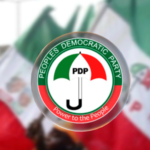A former National Vice Chairman of the ruling All Progressives Congress (APC), Salihu Lukman, has cautioned President Bola Tinubu and other chieftains against a culture of manipulating political contests through imposition, saying unless there is a rethink, “almost all APC candidates for 2027 elections may be produced through imposition”.
In a write up titled, ‘The Cancer Destroying Nigerian Democracy’, Lukman said: “Being loyal APC members, we must also appeal to all APC leaders, especially President Asiwaju Tinubu, to resist the temptation of overindulging themselves with the false belief that they could continue to succeed to impose their choices on Nigerians.
“APC leaders must be humble enough to, as much as possible, bring themselves down to the levels of ordinary Nigerians and have a more listening ear. Inability to listen and have the needed humility to meet the expectation of Nigerians will strengthen the belief of leaders in unethical practices of manipulating political contests. As our Christians brothers and sisters would say, may this not be our portion in APC.”
Lukman explained: “It is almost a return to the old Peoples Democratic Party (PDP) model of party organisation under former President Olusegun Obasanjo with the requirement of 100 per cent loyalty.
Without any attempt to reopen old wounds, the requirement for 100 per cent loyalty was responsible for the graveyard silence internally within the APC when Abdullahi Umar Ganduje was proposed by President Tinubu as National Chairman.
“After Ganduje’s successful emergence, there was also a graveyard silence even when Ganduje continued with the practice of freezing structures of the party. No meetings of organs are taking place almost four months after the emergence of Dr. Ganduje as APC National Chairman.”
According to Lukman, “like the case in PDP in 2007, it may grow to the point whereby almost all APC candidates for 2027 elections may be produced through imposition. Unless we want to lie to ourselves, as things are, the culture of manipulating political contests through imposition, vote buying, rigging, etc., in APC has reached the point where PDP was in 2007.
“Recall that on May 29, 2007, the late President Umaru Musa Yar’Adua, while delivering his inaugural address to the nation, acknowledged that the election that brought him to power had shortcomings and undertook to set up a panel to examine the entire electoral process with a view to ensuring that we raise the quality and standard of our general elections, and thereby deepen our democracy.”
ADVERT- CLICK THE IMAGE
He stressed that any proposal for electoral reform in the country must include a stronger regulatory framework for the operations of political parties.
“If INEC is not to be unbundled to produce a Political Parties Regulatory Commission as proposed by the Justice Uwais panel, then it should be strengthened to regulate the conduct of political parties in the country, including getting parties to respect their own rules.
“So long as political parties in Nigeria are allowed to operate in a lawless manner, the problems of manipulating political contests would continue and the challenge of unscrambling the nexus connecting technical to politically motivated failures, with a view to enhancing the integrity of elections in the country, will continue to elude us as nation.”
MEANWHILE, the National Working Committee (NWC) of New Nigeria Peoples Party (NNPP), yesterday, backed the call by PDP presidential candidate in the 2023 election, Atiku Abubakar, for a merger of opposition parties to displace APC.
Addressing journalists in Abuja, acting National Chairman, Abba Ali, said: “The NNPP sees this call from Atiku Abubakar as patriotic and a welcome development for which we unreservedly commend him.”
He, nevertheless, added that NNPP “has modifications to that collaboration being proposed by Atiku Abubakar. It is our belief that such an arrangement should be all-encompassing and broad”.
He said: “To the former Vice President’s call, our party notes that this was the same bold initiative which the opposition parties signed up to in 2015 and which enabled the merger that led to the defeat of the then ruling PDP.”

Ali recalled that Atiku Abubakar called for a merger of opposition parties as a way of checkmating the drive by the APC towards a one-party state and protecting the country’s democracy.
He added, “At the moment, we are studying the mood of the country and the political atmosphere. NNPP will welcome any initiative from any political party and oblige any invitation towards discussing any arrangement aimed at protecting our people, our democracy, and towards the much-desired accelerated and sustainable development of our country.
“Despite sponsored crises and challenges, we are confident that the NNPP will continue to provide necessary alternatives in our political space. This we will do without prejudice to us joining forces with all other interested parties and like minds towards peace, security, progress, development and protection of our democracy and the overall interests of our country.”
THIS came as former President Muhammadu Buhari, who was elected on the APC platform, chronicled his time in power and some of the challenges he faced.
Asked in an interview with Nigerian Television Authority (NTA), released Monday night, if he agreed that a cabal hijacked his government or it was merely a figment of imagination, Buhari said: “It must have been,” but added that he wasn’t sure anybody flouted the rules and was allowed to “walk away”.
The former president said he allowed people to do their jobs when he assigned tasks, stressing that if he was given the same chance he wouldn’t do anything differently under Nigeria’s current system.
Buhari, who appeared to veer off point several times during the session, explained that he tried to be as accountable as possible during his administration.
“Nigerians are extremely difficult. People know their rights. They think they should be there, not you. So, they monitor virtually every step. And you have to struggle day and night to ensure that you are competent enough,” he said.
The former president also said he was too preoccupied with local matters to be bothered with foreign issues as president. He said his biggest challenge was securing the country.
According to him, he did not try to compete with Nigeria’s wealthy class by acquiring land, houses, and cars during his time as leader, explaining that it was the reason he was “living in peace” after exiting government.
He said some Nigerians attempted to set a trap for him by trying to ambush him with certain opportunities, but he avoided the trap because he knew that once they realised he had been compromised, they would take advantage of the situation to milk the country.
On the controversial naira redesign policy, Buhari said: “Whether Nigerians believe it or not, we are an underdeveloped country. And in that sort of situation, there’s materialism. And sometimes, ruthlessly, they didn’t care how they made the money.
“…I still feel that the only way I could deprive these people was just to make sure that my integrity became unquestionable…I think as a developing country we still have a long way to go. The motivation (for introducing the policy) was to try and make Nigerians believe that there is no shortcut to successful leadership.”
He said he wasn’t shocked that he was taken to court by governors from his own party at the time of the policy.
On the Ethiopian/Nigerian Air debacle at the tail end of his administration, Buhari said if there was any shortcoming he had, it was giving people a free hand to do their work.
IN a related development, National Publicity Secretary, Youth Party, Ayodele Adio, said an incumbent congratulating the winner of a free and fairly conducted election should not be a cause to celebrate, adding: “But this is West Africa, where several countries in the last few years have fallen into dictatorship.”
Adio, in an interview with The Guardian, was reacting to the just concluded election in Liberia, where the incumbent president, George Weah, accepted defeat and congratulated the winner, Joseph Boakai, urging his supporters to accept the result.
Adio noted that while Weah may not only have conceded defeat, he had inadvertently given democracy a timely booster, reinforcing the idea that the people have the power to change their leaders via the ballot.
He said: “It is also a shining example that despite its flaws, democracy can thrive in West Africa, even if we define success by simply the transfer of power from one democratic elected president to another.
“More importantly, worth stressing is the fact that Africa has no more need for strong men but for strong institutions. And the only way to build strong and enduring institutions is to be guided by a credible process and a strict adherence to the rule of law.”






